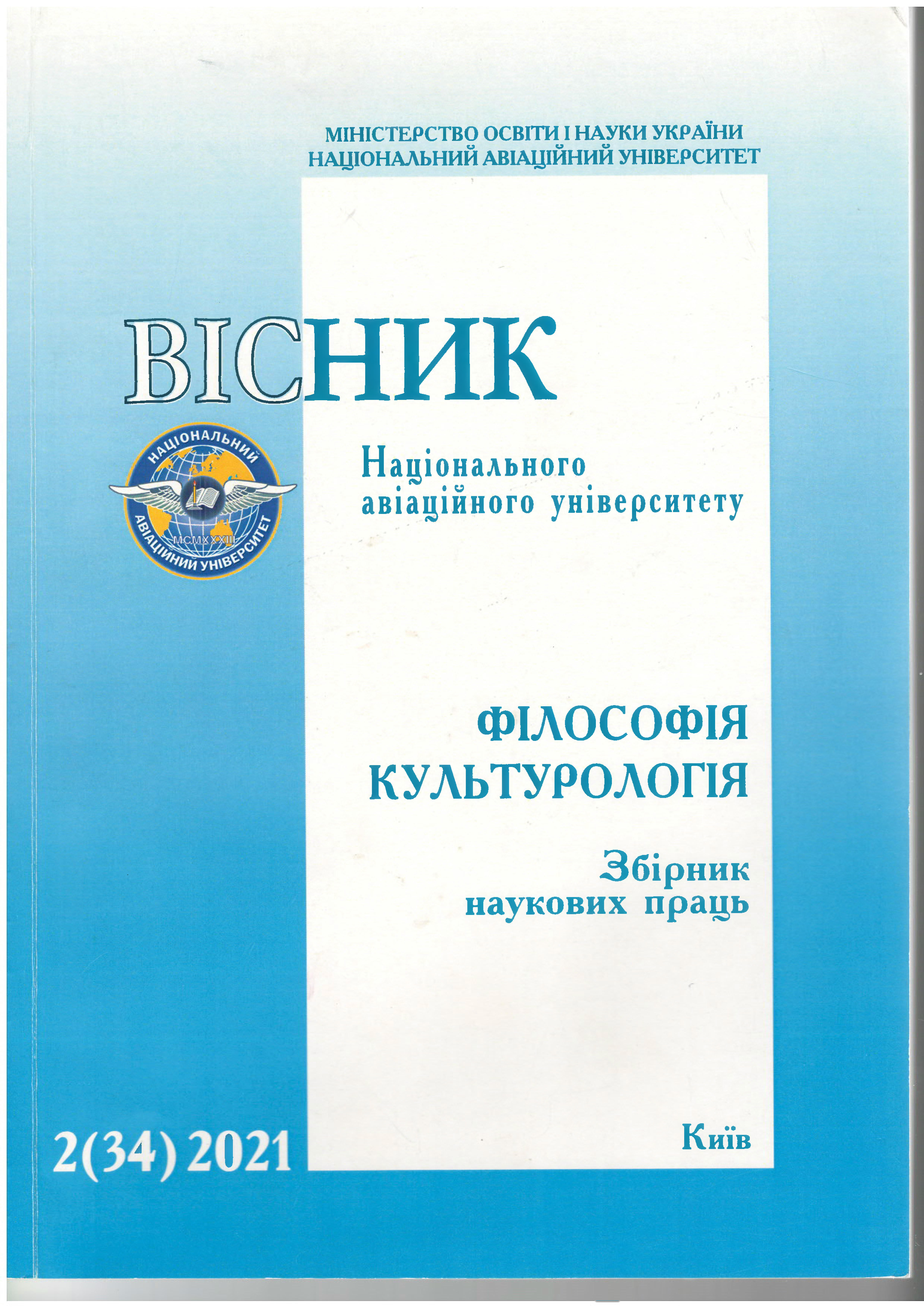ЕКОЛОГІЧНА КРИЗА ТЕХНОГЕННОЇ ЦИВІЛІЗАЦІЇ: РИЗИКИ ХХІ СТОЛІТТЯ
DOI:
https://doi.org/10.18372/2412-2157.34.16304Ключові слова:
природа, техносфера, техногенна цивілізація, екологічна криза, технологічний розвиток, космічна діяльність, екологічні ризикиАнотація
У статті досліджуються особливості кризових явищ у відношенні «людина – природа» на початку ХХІ
століття, які пов’язані з розширенням техносфери. Уточнено зміст терміну «техносфера» з позицій філософського
світогляду. Показано, що технологічний розвиток людства у ХХІ столітті зачіпає не лише техногенне середовище
на планеті Земля, а й значною мірою порушує природний стан космічного простору через запуски штучних
супутників, ракет тощо, які з плином часу виходять із ладу й стають космічним сміттям. Отже, далекий космос
стає для землян ближчим не лише з точки зору його вивчення, але й із точки зору негативного впливу
технологічного його освоєння людством. У зв’язку із цим у статті розглядаються можливі екологічні ризики,
зумовлені подальшим наростанням технологічної діяльності людства у космосі.
Посилання
Список літератури
Мочалов И. И., Оноприенко В. И. В. И. Вернадский: Наука. Философия. Человек. К 150-летию со дня рождения В. И. Вернадского. Кн. 2. – Киев: «Информ.-аналит. агентство», 2012. – 631с.
Степин В. С. Теоретическое знание. – М.: Прогресс-Традиция, 2003. – 744 с.
Попкова Н. В. Философия техносферы. Изд. 2-е. – М.: Книжный дом «ЛИБРОКОМ», 2009. – 344 с.
Онопрієнко В. І. Техногенне суспільство і техногенна цивілізація: ознаки, еволюція, ризики, стратегія контролю / В. І. Онопрієнко, М. В. Онопрієнко // Вісник Національного авіаційного університету. Серія: Філософія. Культурологія. – Вип. 2 (20). – К.: НАУ, 2014. – С. 22-26.
Медоуз Д. Х. За пределами допустимого: глобальная катастрофа или стабильное будущее? / Д. Х. Медоуз, Д. Л. Медоуз, Й. Рендерс // Новая постиндустриальная волна на Западе. Антология. – М.: Academia, 1999. – С. 572-595.
Дротянко Л. Г. Науковий космізм і постнекласична наука: антропологічний контекст взаємозв’язків / Л. Г. Дротянко // Вісник Національного авіаційного університету. Серія: Філософія. Культурологія: збірник наукових праць. – Вип. 2 (28). – К.: НАУ, 2018. – С. 5-11.
Вернадский В. И. О науке. Т. 1. Научное знание. Научное творчество. Научная мысль. – Дубна: Феникс, 1997. – 576 с.8. Моисеев Н. Н. Информационное общество: возможность и реальность / Н. Н. Моисеев // Информационное общество. – М.: АСТ, 2004. – С. 428-451.
Тоффлер Э. Третья волна. – М.: АСТ, 1999. – 784 с.
Морен Э. К пропасти? – СПб, Алетейя, 2011. – 136 с.
Скиба О. П. Екологічна культура як складова духовності сучасної людини / О. П. Скиба // Вісник Національного авіаційного
університету. Серія: Філософія. Культурологія: збірник наукових праць. – Вип. 1 (33). – К.: НАУ, 2021. – С. 146-149.
Gudmanian, A., Drotianko, L., Shostak, O., Kleshnia, H., Ordenov, S. Transformation of ecological consciousness in the process of solving global ecological problems. 2020 E3S Web of Conferences 175,14017.


